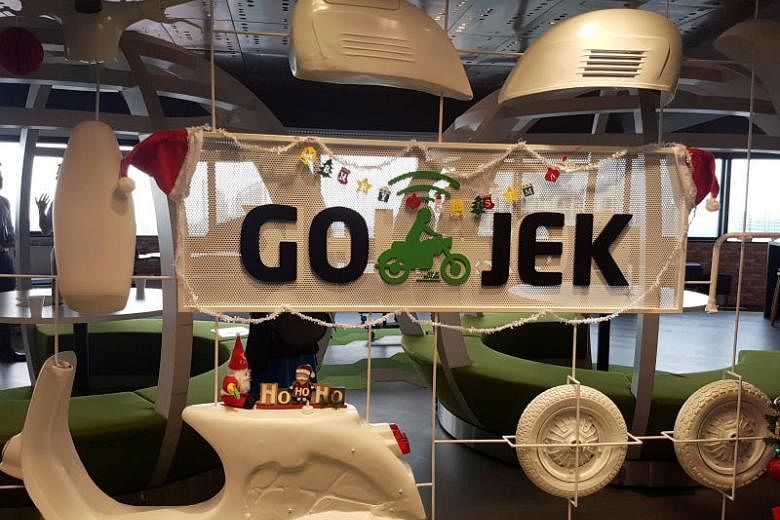Indonesia is a hotbed for start-up activity in South-east Asia with four unicorns, each with a coveted US$1 billion (S$1.4 billion) valuation.
Gojek, which started out as a ride-hailing platform and later began offering services like food delivery, massage and home cleaning, became the country's first unicorn in 2016 when it was valued at US$1.3 billion.
Other home-grown start-ups - online travel agency Traveloka and e-commerce platform Bukalapak - followed suit in 2017. Online retailer Tokopedia entered the club in December last year.
Behind all four are global investors such as Sequoia Capital India, Warburg Pincus, SoftBank Group, Alibaba Group, East Ventures and 500 Startups, all eager to cash in on the world's fourth-most populous nation, with more than 260 million people.
Association of Venture Capital for Indonesian Start-ups deputy chairman Donald Wihardja said the rapid expansion of local firms is largely driven by the huge domestic market - more than half of which comprises middle-class consumers - as well as deeper Internet and mobile phone penetration in recent years.
About 65 per cent of the population is connected to the Internet, according to the Indonesian Internet Providers Association.
"People here now have stronger purchasing power and... they prioritise convenience over price," said Mr Donald, who is also a board member of Next Indonesia Unicorn, a government-backed initiative to support local start-ups.
IT expert Heru Sutadi said the rapid rise in the number of mobile phones, along with the intensive use of social media, has contributed to the robust expansion of start-ups and their transformation into unicorns. "Indonesians are always enthusiastic about new things and start-ups can provide services demanded by the people. (These services) may have existed before, but mobile phones are changing the way they are delivered," he said.
The value of South-east Asia's Internet economy covering ride hailing, online travel and e-commerce will hit US$240 billion by 2025, according to a study by Google and Singapore investment firm Temasek. It is estimated that Indonesia, the biggest economy in the region, will account for US$100 billion. Its market amounted to US$27 billion last year, the study said.
Bukalapak chief executive officer Achmad Zaky has said that online to offline e-commerce is now one of the key drivers of the platform's growth. "We continually try to find new sources of growth because the (domestic) market is still very promising," he told The Straits Times.
Founded by Mr Achmad and fellow tech enthusiasts Muhamad Fajrin Rasyid and Nugroho Herucahyono in 2010, Bukalapak began as a marketplace for small and medium-sized enterprises to sell their products online. Last year, it teamed up with around 500,000 kiosk owners and 700,000 individuals nationwide under a scheme called Mitra Bukalapak, or Bukalapak partners.
This offers customers without access to the Internet a wide array of goods, ranging from mobile phones to pre-paid electricity vouchers to airplane and train tickets.
Traveloka has been expanding its business beyond travel and developing lifestyle products and services ranging from spa treatments to cashless payments.
"Our aim is to become a dependable platform to help users discover the world around them," said its co-founder Ferry Unardi.

